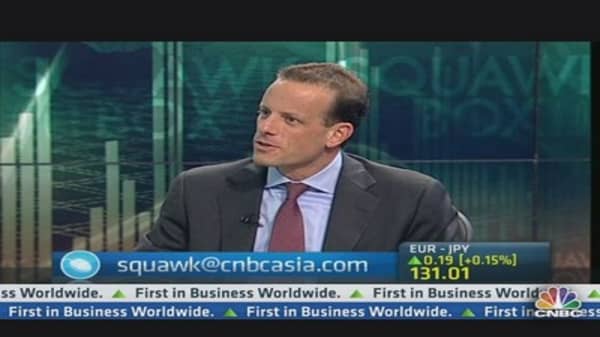Japan risks facing stagflation - where accelerating inflation is not met by higher growth rates - if "Abenomics" fails to restore momentum in the world's third largest economy, warned Alex Friedman, global chief investment officer at UBS Wealth Management.
"It's possible we could see a stagflation scenario, where you see inflation in asset prices but no real growth. The ultimate story is you need a hand off to real growth - in Japan there's a real question of whether that's possible," Friedman told CNBC Asia's "Squawk Box" on Wednesday.
(Read More: Consumers Still to Buy Into Abe's Economic Experiment )
"If you don't have growth, then you end up with a potential Armageddon story, something we would call Abegeddon," he added.
In an "Abegeddon" scenario, Friedman said investors may grow increasingly concerned about the sustainability of Japanese debt levels that could lead to a "stampede" out of government bonds.
(Poll:
Does Abe's 'Third Arrow' Go Far Enough?
)
Under these circumstances, Japan's debt to gross domestic product ratio would rise above 300 percent from 226 percent currently, and the 10-year government bond yield could approach 5 percent, he predicted, from 0.86 percent.
"This would damage the financial system significantly, and regional bank capital would be severely impaired," Friedman added.
(Read More: Relax, Sign Points to Eventual Rally in Japan Stocks )





